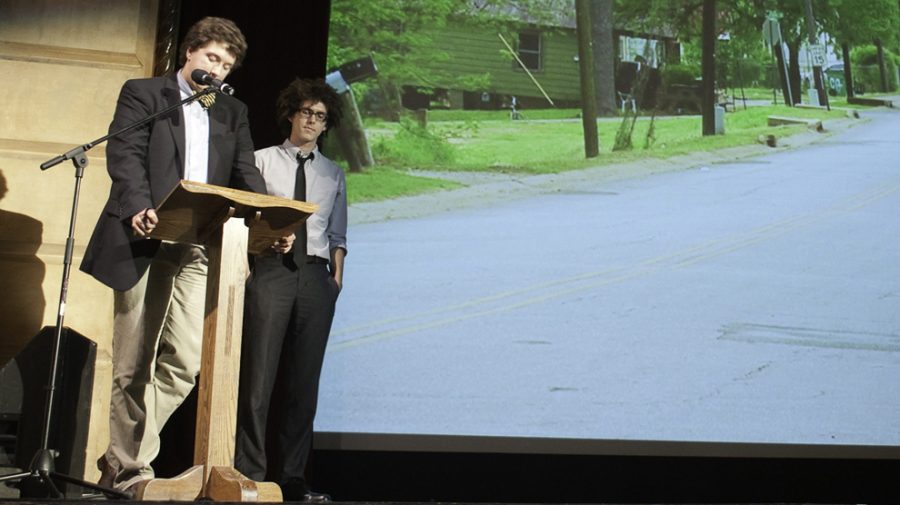The Bama Theater was filled tonight as 13 UA students presented their original documentaries.
The fifth-annual Documenting Justice screening featured six films that covered a large range of topics that Alabama deals with today.
“I think it’s cool because of the crowd that usually frequents it, it’s some of the most cultured people at the University,” said Anna Foley, a senior majoring in English. “I’ve heard it’s a huge project to undergo, hearing them talk about it during the semester and how they have to learn to choose what goes into the film, it’s just very impressive.”
The screening brought people not only from campus, but from all over Tuscaloosa who were either supporting their friends or interested to see what the students had accomplished.
“I think we’re most excited to see what people think of our film,” said Chris Scott, a senior majoring in religious studies and a Documenting Justice student. “We’ve been working on it for so long that we can’t really judge it objectively.”
In the speeches each group gave before their video was screened, they all mentioned just how much work goes into making a documentary but were all proud of what they had finished.
Scott and his partner, Mary Baschab, said that they have spent countless hours working on the film since January, and now that it’s done they feel as though a weight has been lifted off of their shoulders.
“It feels great to be done,” said Sarah Massey, a junior majoring in English and New College who also made a film. “It is kind of sad though, because I enjoyed the whole process of making the documentary and telling the story.”
Massey worked on the film “Standardized” with two other students, Drew Hoover and Hallie Paul. The documentary told the story of two girls from different areas of Birmingham preparing for the ACT. Among the others shown was a film telling the story of Roy Moore, former Alabama Supreme Court chief justice; the story of the U.S. catfish industry; and the story of how the Latino community is dealing with recent anti-immigration laws.
In the question-and-answer section following the screening of the films, Andrew Grace, director of Documenting Justice, said one of the best things about documentary films is they really allow the filmmaker to get to the heart of the subject.
“I think it’s a really unique art form in that it requires you to think critically on an issue,” he said. “Documentaries allow you to take a very artful approach to these true stories.”
The artful approach on the stories is something that Grace and some of the filmmakers thought other mediums, such as newspapers, have a hard time doing. With documentaries, there is no voice in the video other than the subjects of the story, so it can take any twist it wants to. Many of the filmmakers also agreed that while the final product wasn’t what they had originally planned, they were all happy with the direction in which their films went.
“It is always very insightful,” said Christy Boardman, a junior majoring in economics. “I particularly like it because there are things that I don’t get exposed to often. It’s something you don’t get in a newspaper, it’s very personal.”
Going into the screening, some of the people who had come to view the film were expecting films that were moving and eye opening, based on what they had heard from previous years.
After all of the films had been shown, Massey said she thought the audience had received all of the films really well, and she was happy with the number of people who came to support their work.
“The success of this class and of these films is predicated upon their being a lot of people here every year,” Grace said. “It means a lot to me, personally, but more than that it means a lot to my students to see this kind of turn out.”









